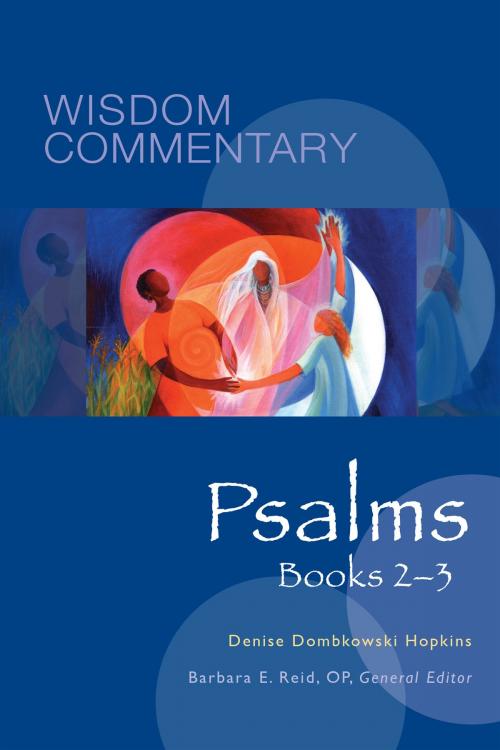Psalms, Books 2–3
Nonfiction, Religion & Spirituality, Bible & Bible Studies, Old Testament, Criticism & Interpretation, Commentaries| Author: | Denise Dombkowski Hopkins | ISBN: | 9780814681459 |
| Publisher: | Liturgical Press | Publication: | November 17, 2016 |
| Imprint: | Michael Glazier | Language: | English |
| Author: | Denise Dombkowski Hopkins |
| ISBN: | 9780814681459 |
| Publisher: | Liturgical Press |
| Publication: | November 17, 2016 |
| Imprint: | Michael Glazier |
| Language: | English |
Many readers are convinced that the Psalms are hopelessly “masculine,” especially given that seventy-three of the 150 psalms begin with headings linking them to King David. In this volume, Denise Dombkowski Hopkins sets stories about women in the Hebrew Bible alongside Psalms 42–89 as “intertexts” for interpretation. The stories of women such as Hannah, Rahab, Tamar, Bathsheba, Susanna, Judith, Shiphrah, Puah, and the Levite’s concubine can generate a different set of associations for psalm metaphors than have traditionally been put forward. These different associations can give the reader different views of the dynamics of power, gender, politics, religion, family, and economics in ancient Israel and in our lives today that might help to name and transform the brokenness of our world.
From the Wisdom Commentary series
Feminist biblical interpretation has reached a level of maturity that now makes possible a commentary series on every book of the Bible. It is our hope that Wisdom Commentary, by making the best of current feminist biblical scholarship available in an accessible format to ministers, preachers, teachers, scholars, and students, will aid all readers in their advancement toward God’s vision of dignity, equality, and justice for all.
The aim of this commentary is to provide feminist interpretation of Scripture in serious, scholarly engagement with the whole text, not only those texts that explicitly mention women. A central concern is the world in front of the text, that is, how the text is heard and appropriated by women. At the same time, this commentary aims to be faithful to the ancient text, to explicate the world behind the text, where appropriate, and not impose contemporary questions onto the ancient texts. The commentary addresses not only issues of gender (which are primary in this project) but also those of power, authority, ethnicity, racism, and classism, which all intersect.
Each volume incorporates diverse voices and differing interpretations from different parts of the world, showing the importance of social location in the process of interpretation and that there is no single definitive feminist interpretation of a text.
Many readers are convinced that the Psalms are hopelessly “masculine,” especially given that seventy-three of the 150 psalms begin with headings linking them to King David. In this volume, Denise Dombkowski Hopkins sets stories about women in the Hebrew Bible alongside Psalms 42–89 as “intertexts” for interpretation. The stories of women such as Hannah, Rahab, Tamar, Bathsheba, Susanna, Judith, Shiphrah, Puah, and the Levite’s concubine can generate a different set of associations for psalm metaphors than have traditionally been put forward. These different associations can give the reader different views of the dynamics of power, gender, politics, religion, family, and economics in ancient Israel and in our lives today that might help to name and transform the brokenness of our world.
From the Wisdom Commentary series
Feminist biblical interpretation has reached a level of maturity that now makes possible a commentary series on every book of the Bible. It is our hope that Wisdom Commentary, by making the best of current feminist biblical scholarship available in an accessible format to ministers, preachers, teachers, scholars, and students, will aid all readers in their advancement toward God’s vision of dignity, equality, and justice for all.
The aim of this commentary is to provide feminist interpretation of Scripture in serious, scholarly engagement with the whole text, not only those texts that explicitly mention women. A central concern is the world in front of the text, that is, how the text is heard and appropriated by women. At the same time, this commentary aims to be faithful to the ancient text, to explicate the world behind the text, where appropriate, and not impose contemporary questions onto the ancient texts. The commentary addresses not only issues of gender (which are primary in this project) but also those of power, authority, ethnicity, racism, and classism, which all intersect.
Each volume incorporates diverse voices and differing interpretations from different parts of the world, showing the importance of social location in the process of interpretation and that there is no single definitive feminist interpretation of a text.















